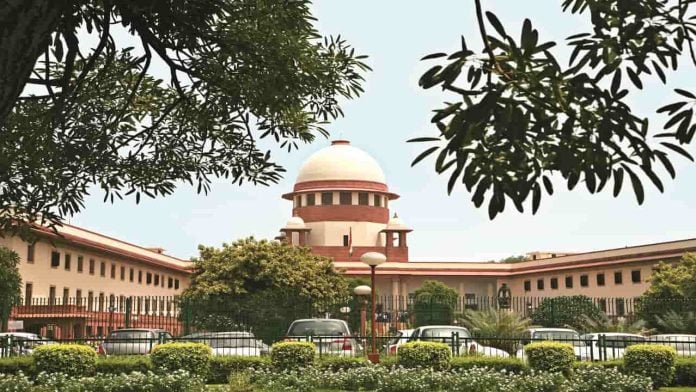The Supreme Court has held that despite the stringent conditions provided under Section 37, the undue delay in trial can always be a ground for granting bail to an accused who had been charged under the Narcotics Drugs and Psychotropic Substances Act 1985 (NDPS Act).
The Court as per Section 37 NDPS Act, can grant bail to the accused person only after being satisfied that there are reasonable grounds for believing that he is not guilty of such offence and that he is not likely to commit any offence while on bail.
A division bench comprising of Justice S Ravindra Bhat and Justice Dipankar Dutta said that laws which impose stringent conditions for grant of bail, may be necessary in public interest; but incase the trials are not concluded in time, the injustice wrecked on the individual is immeasurable.
The Court said that the grant of bail on ground of undue delay in trial, cannot be said to be fettered by Section 37 of the Act, given the imperative of Section 436A is also applicable to offences under the NDPS Act.
Importantly, the Court said that a plain and literal interpretation of the conditions under Section 37 should satisfy that the accused is not guilty and would not commit any offence, would effectively make grant of bail impossible.
Therefore, the only manner in which such special conditions as enacted under Section 37 can be considered within constitutional parameters is where the court is reasonably satisfied on a prima facie look at the material on record (whenever the bail application is made) that the accused is not guilty, the Court underscored.
The order said that if it is interpreted any other way than this, interpretation, would result in complete denial of the bail to a person accused of offences such as those enacted under Section 37 of the NDPS Act.
The Court, has thus granted bail to the appellant after noting that he had spent over seven years in jail in an NDPS case and trial was proceeding at snail’s pace.
The Court said that the progress of the trial has been at a snail’s pace as only 30 witnesses have been examined, whereas 34 more have to be examined.
The case in question concerns the supply of ganja. In the case four accused were found to be in possession of 180 kilograms of ganja.
The appellant was arrested at the instance of the confessional statement of one of the arrested persons.
At the time of his arrest, the appellant was 23 years old and, he was not found in possession of the said narcotic drug.
The appellant was booked under Sections 20, 25 and 29 of the NDPS Act. His bail application was rejected by the District Court based on the gravity of the offences alleged, severity of punishment, and his alleged role.
It was also noted that the appellant had been in regular contact with the other co-accused to commit the crime, and that material witnesses were yet to be examined.
The appellant moved the Delhi High Court for bail which was rejected on the ground that the appellant was prima facie in regular contact with other co-accused as indicated by the call records, and that the main accused had transferred money from his bank account to the appellant’s bank account, several times.
The High Court noted that it was a prima facie case against appellant and there were no grounds to rely on the exceptions of Section 37 NDPS Act.
This led to the appeal before the apex court.
The Supreme Court found out that the recovery of ganja was from the four co-accused and the appellant was only arrested at the behest of confessional statement by one of the co-accused.
The Court acknowledged that Section 37 NDPS Act and other similar provisions with such strict conditions like Section 43D(5) of the Unlawful Activities Prevention Act 1967 and Section 45 of the Prevention of Money Laundering Act 2002, have been upheld.
The Court noted that in the present case, the appellant has been in jail for more than seven years, with the trial moving at the snail’s pace.
In view of the above, the Court proceeded to grant bail to the appellant.
Before parting, the Court also bemoaned living conditions of prisoners in Indian jails which are overcrowded.
“Jails are overcrowded and their living conditions, more often than not, appalling. According to the Union Home Ministry’s response to Parliament, the National Crime Records Bureau had recorded that as on 31st December 2021, over 5,54,034 prisoners were lodged in jails against total capacity of 4,25,069 lakhs in the country20. Of these 122,852 were convicts; the rest 4,27,165 were undertrials,” the Court said.
[


